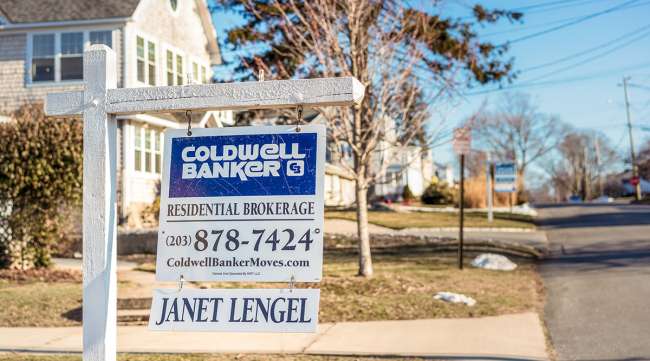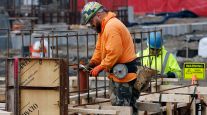US Pending Home Sales Increase Less Than Forecast in March

A gauge of signed contracts to purchase previously owned U.S. homes rose less than forecast in March, and the prior month’s reading was revised down, indicating a lack of inventory is restraining the market, according to data released April 30 from the National Association of Realtors in Washington.
Highlights of March Pending Home Sales
• Index rose 0.4% month over month (estimated 0.7% gain) after a revised 2.8% increase (previous 3.1%).
• Gauge declined 4.4% year-over-year on an unadjusted basis after a revised 4.7% decrease.
Key Takeaways
The latest results show that interested buyers continue to face a persistent shortage of affordable inventory that is driving up property prices faster than wage growth.
Nonetheless, a solid job market and lower taxes are helping underpin demand for housing even as mortgage rates climb to an almost five-year high.
NAR revised its annual sales forecast to 5.61 million existing homes this year, 1.8% more than in 2017. It previously projected sales would match last year’s 5.51 million.
NAR data released earlier this month showed existing-home sales climbed to a four-month high in March. The Realtors group said half of the houses sold were on the market for less than a month.
NAR has said it expects the market will remain tight until more institutional investors list their properties and more homeowners agree to sell their houses.
Official’s Views
“Healthy economic conditions are creating considerable demand for purchasing a home, but not all buyers are able to sign contracts because of the lack of choices in inventory,” NAR Chief Economist Lawrence Yun said in a statement. “Prospective buyers are increasingly having difficulty finding an affordable home to buy.”
“It is an absolute necessity for there to be a large increase in new and existing homes available for sale in coming months to moderate home price growth,” he said. “Otherwise, sales will remain stuck in this holding pattern, and a growing share of would-be buyers — especially first-time buyers — will be left on the sidelines.”
Other Details
• Purchases dropped 5.6% in the Northeast, reflecting multiple winter storms.
• Sales declined 1.1% in the West, and climbed 2.5% in the South and 2.4% in the Midwest.
• Economists consider pending sales a leading indicator because they track contract signings. Purchases of existing homes are tabulated when a deal closes, typically a month or two later.
With assistance by Jordan Yadoo




